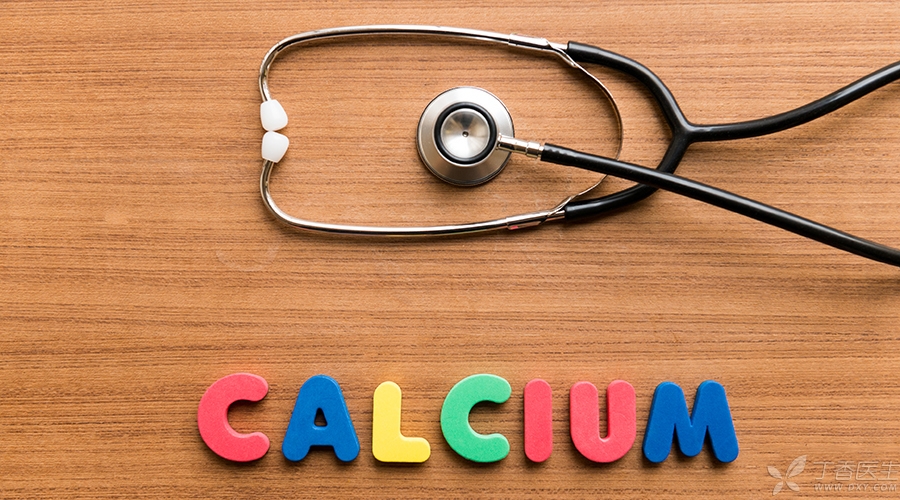
The topic of [calcium supplement] has been said several times before, but the momentum of parents’ giving their children [calcium supplement] has not slowed down at all because of Dr. Clove’s popular science…
At regular intervals, someone left a message asking if the baby Balabala (which listed some manifestations) was calcium deficient. Do you want calcium supplement?
Although Dr. Clove can understand the anxiety and uneasiness when everyone sees that their babies have symptoms that they did not have before, which are different from other babies and that we do not know, they cannot casually say that this is calcium deficiency.
These are not calcium deficiency
1. Occipital baldness
The baby only has a circle of hair missing from the back of the head, which seems abnormal but is actually normal.
It is mainly related to the growth cycle of the baby’s hair, and after birth, the baby spends most of his time lying down and sleeping, turning his head and rubbing repeatedly in bed, which also makes the hair on the back of the head fall off faster.
2. Late teething and slow teething
The baby’s teeth are actually formed when the mother’s stomach is in, but they are all in the gums. Some teeth come out early and some teeth come out late, just because each baby has its own growth characteristics.
No matter how much calcium is supplemented, it will not affect the baby’s originally established teething time.
3. It is easy to wake up at night.
There are many reasons for the baby to cry at night, such as hunger, urine, pulling, flatulence, stomach discomfort, night terror, nightmares, and comfort…
These have nothing to do with calcium deficiency. There are different ways to deal with each reason. It is impossible to solve them by supplementing calcium.

Step 4 Sweat a lot
It is very normal for a baby to sweat profusely after sleeping, eating milk and playing. It is related to the physiological development characteristics of the baby. With the growth of age and the gradual improvement of development, this phenomenon of excessive sweat will gradually improve.
Although it is normal for the baby to sweat a little more than adults, if the baby has been sweating profusely and touching his back is also sweating, ask yourself quickly, is it too hot at home? Is it too thick for the baby?
5. Walking unsteadily and wrestling easily
It is normal for a baby to walk unsteadily when learning to walk. When thinking about learning to ride a bicycle, is it not unstable and easy to fall?
As long as there is no problem with the child’s growth and development, this instability is only temporary. Give the baby time and wait for him to walk skillfully.
Step 6: Be short
The height problem, besides heredity, is also closely related to nutrition.
If the baby’s unbalanced nutrition affects the growth and development, there will be too much nutrition to be adjusted. Only calcium supplement is blindly applied and the balanced nutrition of diet is not adjusted, and the child still cannot get enough nutrition.

What do you think of calcium deficiency?
Having said that, what is not short of calcium, and parents will certainly ask what they think of the lack of calcium.
Lack is itself a relative concept. Compared with the amount needed, less is lack.
Referring to < < Reference Intake of Dietary Nutrients for Chinese Residents (2013 Edition) > >, for babies aged 0-6 months, it is recommended to take 200 milligrams of calcium per day, 250 milligrams per day for 7-12 months and 600 milligrams per day for 1-3 years old.
For babies under one year old, the main food is breast milk/formula milk. Calcium in breast milk or formula milk (containing 200 milligrams of calcium per 600 milliliters) can meet the needs of children, and the utilization efficiency is better. As long as the baby eats and drinks well and has good growth and development, there is no need to worry about calcium deficiency in the baby, let alone extra calcium supplement.
After one year old, the main sources of calcium are milk, green leafy vegetables, beans, etc. The diet is balanced, all kinds of food are eaten, and a balanced diet can completely obtain enough calcium from food, and can also help children to form good eating habits. The American Academy of Pediatrics also does not recommend supplements such as calcium tablets to healthy children to supplement calcium.

Perhaps some mothers will say that when the baby is born, he can only drink a little milk, or the baby does not know how much he drinks breast milk in a day, or he does not know how much calcium the child eats after a balanced diet… Anyway, he is worried that the child will be short…
Here, I would like to say a few more words to explain that the recommended amount is based on the average situation over a period of time, with more than one day and less than one day. As long as the long-term average is enough, there will be no problem.
Moreover, eating is not an experiment. It should be exactly the same. If you don’t eat enough for a day or two, it won’t affect the overall situation. As long as the baby’s height, weight and development indicators are normal, parents don’t have to worry so much.
Don’t confuse vitamin D supplements with calcium supplements
For infants, the only nutrient recommended to be supplemented by nutritional supplements is vitamin D.
Vitamin D can promote the absorption of calcium and phosphorus. If vitamin D is lacking, the absorption of calcium will be affected accordingly, which may indirectly cause calcium deficiency in babies.
However, vitamin D supplement is different from direct calcium supplement!
A few days after the baby is born, you can start to supplement him with vitamin D, 400 IU per day, and it is recommended to supplement him at least until he is 2 years old. (Poke here for details of vitamin D.)
As long as the baby is supplemented with vitamin D in time, it is normal for the baby to drink milk. Parents really don’t have to worry about calcium deficiency.
